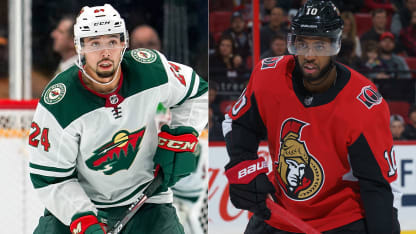"A lot of us had to deal with those issues. I think starting right at the bottom level, kids getting into the game at the young age, being able to provide them with assistance, either it be financially or with gear, giving them that assistance to get to the next level. The way we are looking at it as a team, it's not just about hockey, it's not just about sports. If we can get a kid to play major junior, that means right away he's going to get a free education, it changes his life forever. I think we need to look at, not just from a sports background or a hockey background, what their life could be if we keep them in the game."

